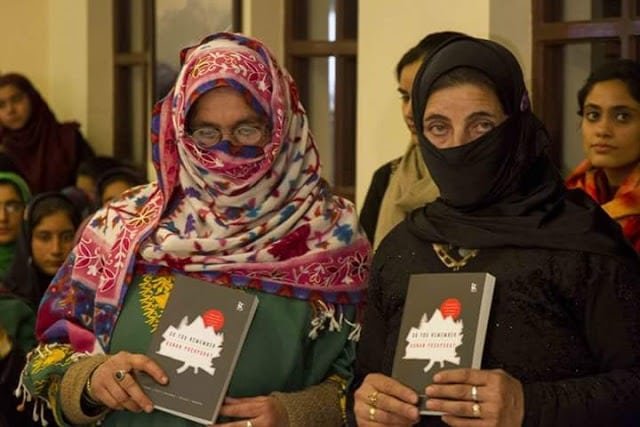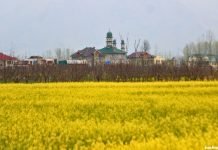Srinagar: Five Kashmiri girls – Essar Batool, Samreen Mushtaq, Natasha Rather, Ifrah Butt and Munaza Rashid, released the book titled “Do you remember Kunan-Poshpora?” here during a function.

The book not only chronicles the lives of the rape victims but has brought back the focus on one of the heinous crimes committed by the soldiers of the Indian Army some three decades ago in Kashmir’s frontier district of Kupwara.

At least 23 women were raped in the twin villages of Kunan-Poshpora on February 23, 1991, allegedly by the troopers of the 4th Rajputana Rifles.

During her speech, author Ifrah Butt said they dared to tell the truth and stripped the lies that were wrapped around the rape committed by state machinery (Army).

“When we approached the high court with a Public Interest Litigation (PIL) for reopening of the case, the state used every tactic to stop us. The high court demanded ID proofs of 100 women who were ready to come forward but then half of them withdrew and only 50 presented their identities before the court,” she said.

She added that the people of Kashmir have not forgotten. “We remember everything. But just they don’t want to talk. They are frightened,” she said.

Writer Essar Batool said, “There are threats from various sides, but if we continue to fear then our voices will continue to get buried. Perpetrators always use fear tactics to keep victims always in fear. We will overcome that.”

Recalling the horrific night, co-author, Munazah said whatever had happened in Kunan-Poshpora was pre-planned.

“There were four groups of armies. Two policemen were forcibly made to sign NOC. One among them who belonged to the same village resisted and followed the case. He was tortured and later killed by unknown gunmen,” she said.

Another writer of the book Natasha Rather said rape word has become a social taboo, but we have managed to break that taboo.

“On a cold February night in 1991, a group of soldiers and officers of the Indian Army pushed their way into two villages in Kashmir, seeking out militants assumed to be hiding there. They pulled the men out of their homes and subjected many to torture, and the women to rape. According to village accounts, as many as 31 women were raped. Twenty-one years later, in 2012, the rape and murder of a young medical student in Delhi galvanized a protest movement so widespread and deep that it reached all corners of the world. In Kashmir, a group of young women, all in their twenties, were inspired to re-open the Kunan-Poshpora case, to revisit their history and to look at what had happened to the survivors of the 1991 mass rape. Through personal accounts of their journey, this book examines questions of justice, of stigma, of the responsibility of the state, and of the long-term impact of trauma.”

“We talked about it. The victims are strong. We got inspiration from them. These victims broke that taboo in 1990’sand stood up against oppression,” she said. (With inputs from PTK)
Follow Us
The Kashmir Pulse is now on Google News. Subscribe our Telegram channel and Follow our WhatsApp channel for timely news updates!











